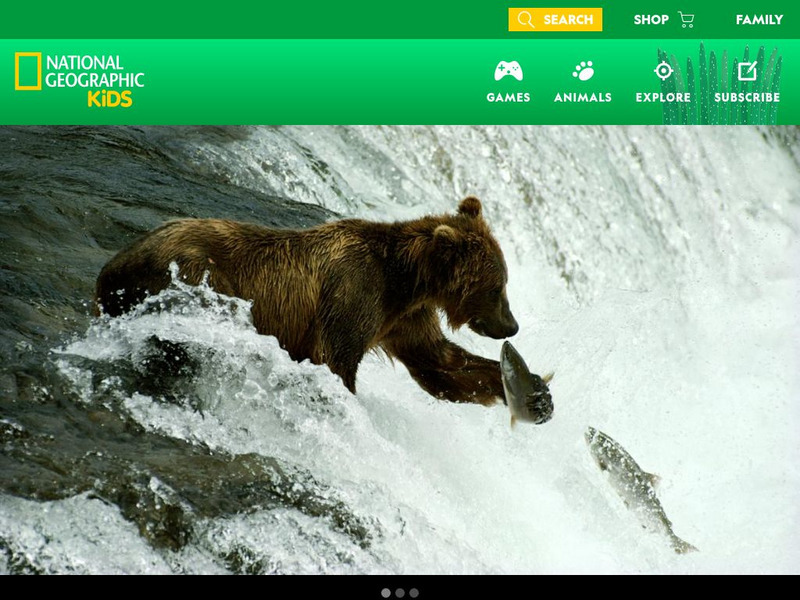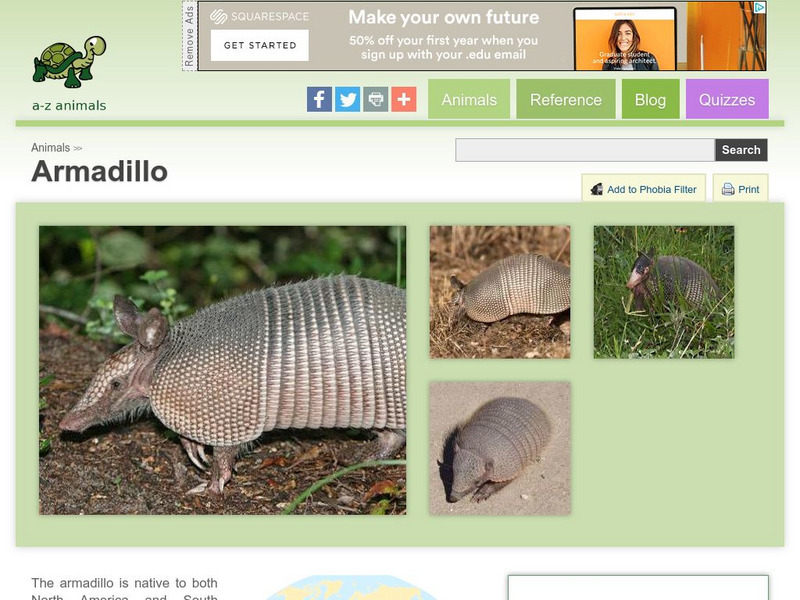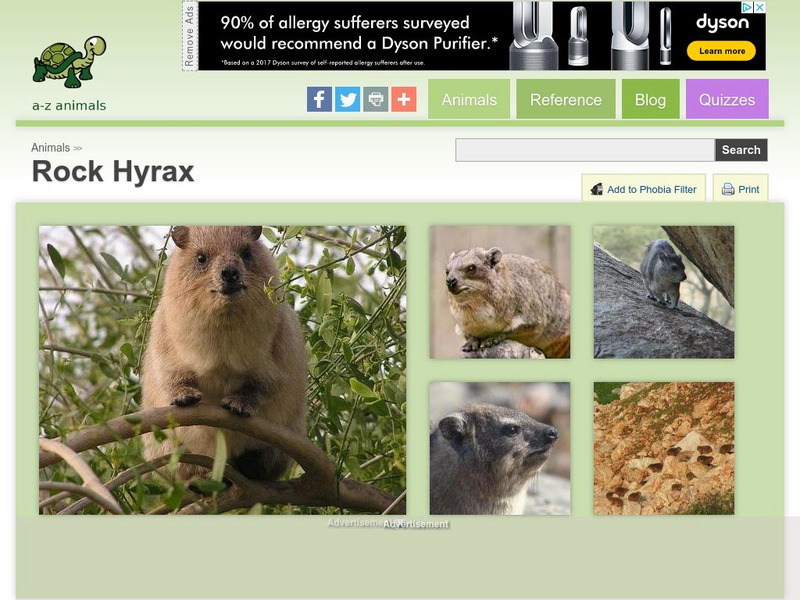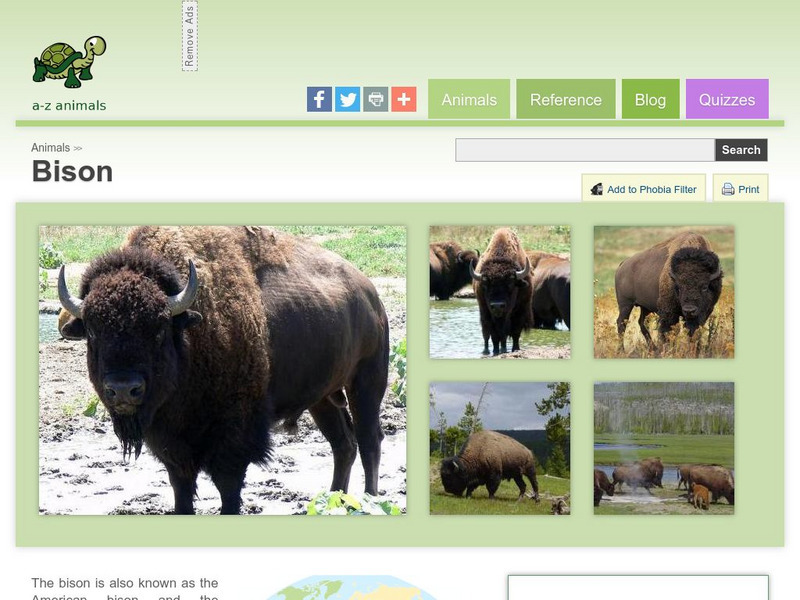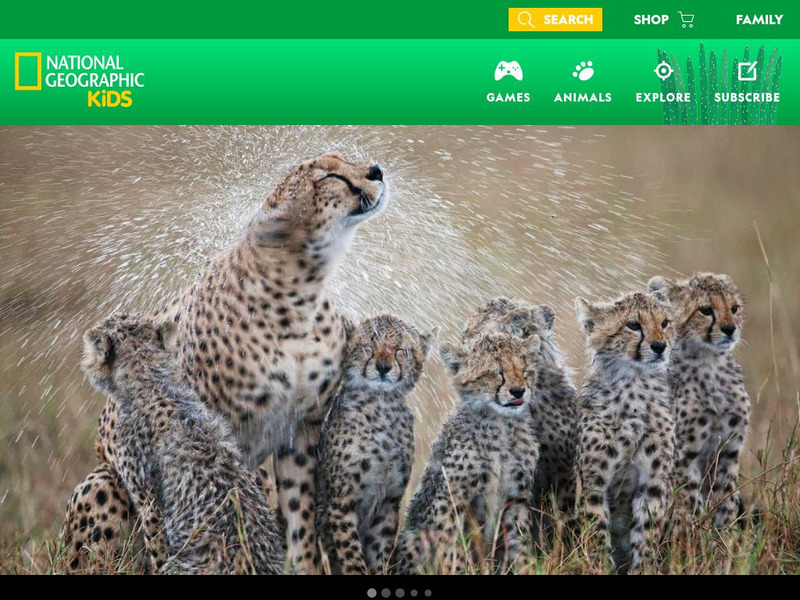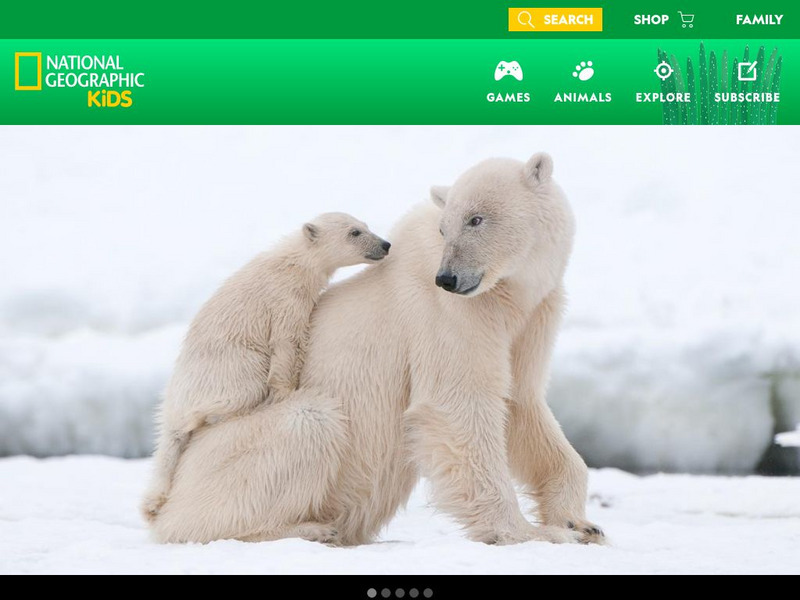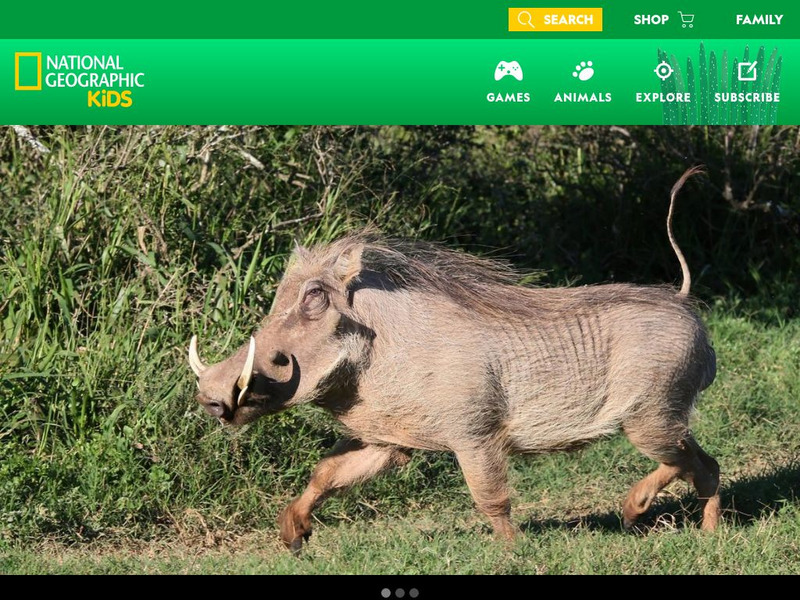Oxfam
Oxfam's Cool Planet: Animals of the Desert
Resource looks at the different types of insects, mammals, reptiles, and birds found in the desert and the strategies they use for survival.
CK-12 Foundation
Ck 12: Life Science: Social Behavior of Animals
[Free Registration/Login may be required to access all resource tools.] Why is animal communication important? Without it, animals would not be able to live together in groups. Animals that live in groups with other members of their...
University of Illinois
University of Illinois Extension: Animals Past and Present
In English and Spanish this site deals with animal life in Illinois past and present. With sections on dinosaurs, animals in Illinois 65 million years ago, animals in Illinois 10 million years ago, and animals in Illinois today, this is...
Science Buddies
Science Buddies: Do Large Mammals Align Themselves With Earth's Magnetic Field?
In this science fair project, use Google Earth to determine if large mammals align themselves in respect to the earth's magnetic field. The Science Buddies project ideas are set up consistently beginning with an abstract, objective, and...
Alabama Learning Exchange
Alex: My Book About Animals
This instructional activity will allow students an opportunity to create a book about the different characteristics of mammals, birds, fish, reptiles, and insects. This instructional activity can be used as a wrap-up project for a unit...
Missouri Botanical Garden
Missouri Botanical Garden: Grassland Animals
This site from the Evergreen Project of the Missouri Botanical Garden provides great information. Click on the animal link on the left. There is an introduction to animals in the grasslands, and then you can read more about each...
Australian Museum
Australian Museum: Mammals
Australian Museum Online has a collection of mammals including bats, platypus, and marsupials. Take a peek. Read about the monkey-faced bat, the mountain brushtail possum, and the tree kangaroo.
Other
Mammals and Their Babies
Twelve mammal baby pictures are displayed in this resource. If you roll your mouse over a picture you can see the adult version of the same animal.
Environmental Education for Kids
Eek!: Mammals
Discover all you need to know about various warm-blooded vertebrates, otherwise known as mammals.
Ducksters
Ducksters: Mammals for Kids: Learn About Animals and What Is a Mammal
Kids learn what is a mammal and what makes it different from other animals on this site.
San Diego Zoo Global
San Diego Zoo: Kids: Mammals
What is a mammal? Find out some common characteristics here.
National Geographic Kids
National Geographic Kids: Animals: Brown Bears
Take an exciting look at this mammal with easy to read facts including habitat, appearance, young, mating, diet, enemies, as well as colorful photos. Links to related whale topics are included.
National Geographic Kids
National Geographic Kids: Animals: Ring Tailed Lemur
National Geographic site engages users with colorful photos and extensive facts about Ring-Tailed Lemurs. Be sure to click on the video link to view a short clip on these fascinating animals.
A-Z Animals
A Z Animals: Animal Facts: Armadillo (Dasypodidae)
Explore the world of the Armadillo, an Armoured plated mammal found in both North and South America. Students will gain a greater understanding of this mammal through statistics and information on their appearance, diet, habitat, and more.
Better Lesson
Better Lesson: Mammals and Their Parents, Perfect Together
Third graders identify and interpret traits that are found in mammals by noticing differences among animals of the same species. Make a claim that traits are inherited from parents that is supported by evidence.
A-Z Animals
A Z Animals: Animal Facts: Rock Hyrax (Procavia Capensis)
Provides photographs and a fact card about the rock hyrax, an unusual mammal that looks like a rodent yet is related to the elephant. Discusses its physical characteristics, distribution and habitat, behavior and lifestyle, life cycle,...
A-Z Animals
A Z Animals: Animal Facts: Anteater (Myrmecophaga Tridactyla)
Explore the world of the Anteater and gain a greater understanding of this mammal through statistics and information on their appearance, habitat, behavior, and more.
A-Z Animals
A Z Animals: Animal Facts: Bison (Bison Bison)
Investigate the world of the Bison and discover information on the appearance, habitat, and conservation status of the largest land mammal in North America. Includes images and statistics.
A-Z Animals
A Z Animals: Animal Facts: Koala (Phascolarctos Cinereus)
Explore the world of the Koala and gain a greater understanding of this Australian mammal through statistics and information on its appearance, habitat, behaviour, breeding, diet, and more.
A-Z Animals
A Z Animals: Animal Facts: Mole (Talpidae)
Explore the world of the Mole and discover information on the physical characteristics, habitat, diet, and breeding of this small mammal. Includes images and statistics.
Nature Conservancy
Nature Conservancy: Animals We Protect: American Bison
Illustrated profile of the American bison, the largest land mammal in North America.
National Geographic Kids
National Geographic Kids: Animals: Cheetahs
National Geographic provides great fun facts about this African cat. Find out where they live. Watch a cheetah in action. Listen to a cheetah purr.
National Geographic Kids
National Geographic Kids: Animals: Polar Bears
National Geographic offers this great site to help you explore a polar bear's world. Facts, video, audio, map and a postcard to send to your friends. Requires RealPlayer for audio and video features.
National Geographic Kids
National Geographic Kids: Animals: Warthogs
"Many scientists believe there are two species of warthogs." Learn all about warthogs in this multi-media site. Video and audio clips as well as other web links make this a great site for student research projects.
Other popular searches
- Classify Animals and Mammals
- Australian Animals Mammals
- Science Animals Mammals
- Animals Mammals Activities
- Animals Mammals Reproduction












